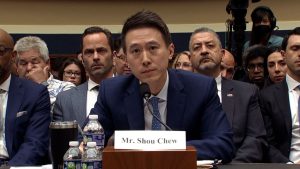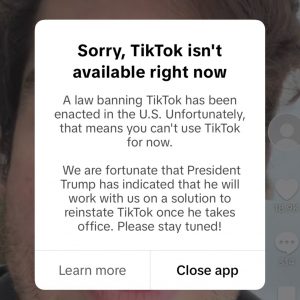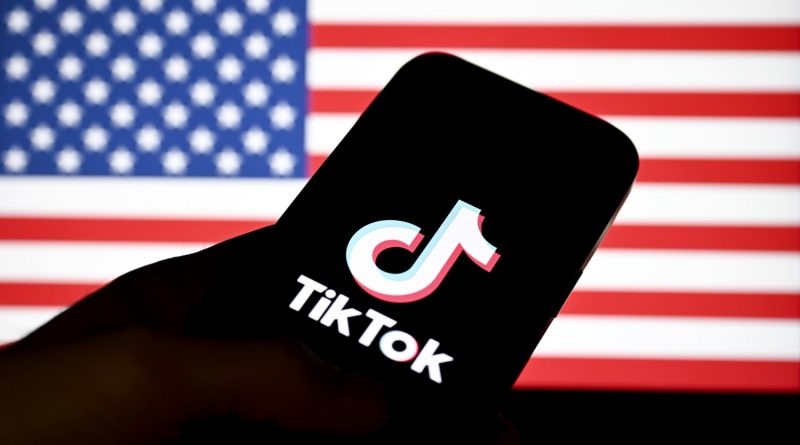The Years-Long Fight Between TikTok and the Federal Government
Matthew Gupta
Tech Editor
The existence of TikTok, one of the most influential social media companies that has completely overhauled the space with short-form content, has gained a vast following from content creators and users. It has also been given plenty of unwanted attention, as it has been in strict conflict with the United States government since the start of the decade. However, with all the attention to this one app, where did the controversy come from, what led us to this point, and where does the future of TikTok lie?
Its troubles began in 2020 when the then-45th President Donald Trump issued Executive Order 13942, which would have forced ByteDance, the owner of TikTok, to sell off the brand or shut it down. The EO stated that TikTok had the ability “to allow the Chinese Communist Party access to Americans’ personal and proprietary information”, and that the party censored “politically sensitive” content, specifically the treatment of Uyghur Muslims and pro-democracy Hong Kong protestors. The result was a race to buy the social media giant, with Oracle leading the effort before the deal fell through. TikTok also fought the ban, successfully suing the federal government with a federal judge blocking the ban. Despite the judge’s move in September 2020, the scrutiny over TikTok continued with the new Biden administration.
In June 2021, Biden officially revoked the ban, but his order did not leave TikTok in the clear. Instead, the government would monitor “potential indicators of risk” for apps including TikTok and WeChat. This investigation became more important by June of 2022 when an article from BuzzFeed warned readers that employees of ByteDance had access to the information of American users. This, combined with its lackluster response to these allegations, revived calls for the government to shut down TikTok. In response, Congress barred federal employees from installing the app on government technology. It also led the CEO of TikTok, Shou Zi Chew, to testify at Capitol Hill, where for five hours he was questioned about data privacy, addiction, and even his affiliations to China and the Chinese Communist Party.

The questioning of TikTok’s data security came to a head in April of 2024 when The Protecting Americans from Foreign Adversary Controlled Applications Act (PAFACA) was passed by Congress in April of 2024. Passing with immense bipartisan support, it required ByteDance to divest from TikTok or shut down its servers entirely by January 19, 2025. TikTok again sued the U.S. Government, claiming the rule violated the First and Fifth Amendments of the Constitution, but this was not supported by the Supreme Court, which the Majority Opinion, led by Chief Justice Roberts, wrote that “divestiture is necessary to address its well-supported national security concerns regarding TikTok’s data collection practices and relationship with a foreign adversary.

With this judgment, Americans came face to face with the reality that TikTok would no longer be accessible, as millions of users opening the app were greeted with a statement that TikTok was no longer available and that they were working to restore service to the U.S. as soon as possible. While the future of TikTok seemed grim, the most unlikely person would end up saving TikTok. President Trump, now the 47th President of the United States, issued an executive order that prolonged the life of TikTok for another 75 days as a more permanent solution was being prepared. This decision seemed to amaze many people, especially with his previous rhetoric regarding China and its control over Chinese-owned companies, along with his previous actions of banning the app.
Looking towards the future of TikTok, it is still not completely safe from restriction. The ban on TikTok was only delayed, not canceled, and there are still decisions to be made of whether ByteDance will divest or continue its affiliation with the app. The case has had a major impact on sparking debate between the thin line between free speech and data security, as Americans argue whether there is more of a threat from limiting how people express themselves or a foreign government controlling American thoughts and beliefs. One thing is for certain; despite all the backlash, TikTok is still available for its two billion users and hopes to stay that way for years to come.
Contact Matthew at matthew.gupta@student.shu.edu

